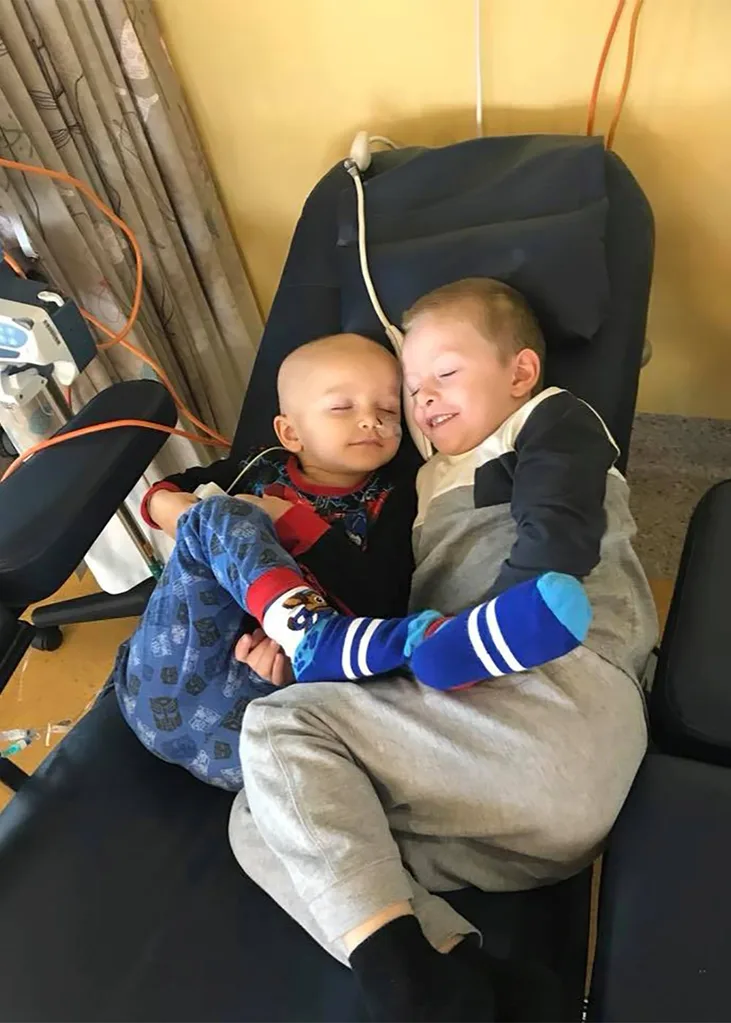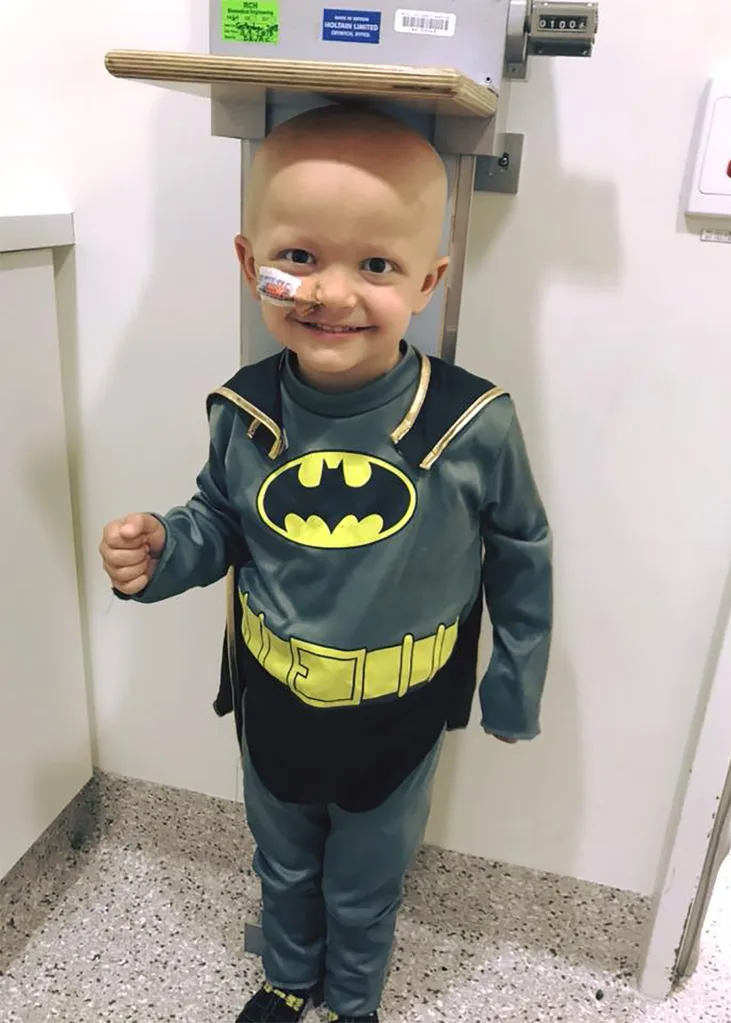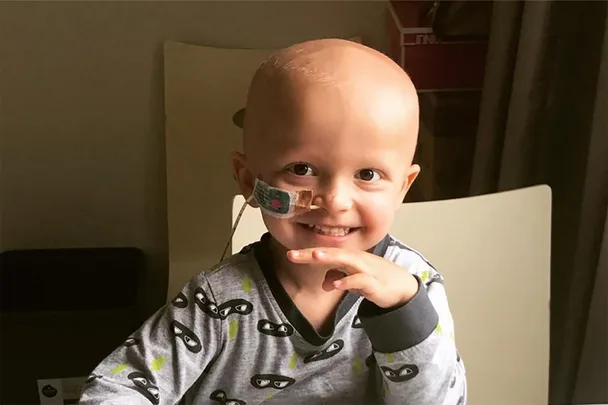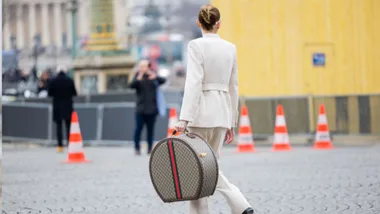When 3-year-old Victorian boy Ryder Grace developed a low-grade fever and a limp, doctors initially believed he had a virus. The little boy was taken to multiple GPs and was instructed to take Nurofen.
“At first he just started limping randomly without there being any real pain, he had a low-grade fever that would come and go,” his mother, Katherine Grace, told Yahoo7 News.
“I took him to the GP eight times in total, they just said he had a virus and an unrelated strain.”
Ms Grace feared her son could have leukemia, but blood tests came back negative. Five weeks later, doctors at the Royal Children’s Hospital took bone marrow samples via a biopsy and diagnosed Ryder with Metastatic Neuroblastoma. The rare childhood cancer affects just one in 100,000.

“By the time we took him to RCH, Ryder’s cancer had grown very aggressively,” Ms Grace explained on the family’s GoFundMe page. “It had spread to every part of his skeleton, much of his soft tissue and in to his bone marrow. He was in pain, everywhere.”
Ryder has since undergone seven cycles of chemotherapy, had a bone marrow transplant and spent most of the past 6 months in hospital.
But despite his positive response to initial treatment, neuroblastoma “is a notoriously recurrent cancer,” Ms Grace said.
“Even with this good response he has a 50% chance of relapsing, possibly even while still in the latter part of his treatment (we’ve been given one opinion that Ryder may be “as low” as a 30% chance to relapse, but this is an opinion only).
“Parents of neuroblastoma children live in fear of every sore limb, every fever, every suspicious symptom, and are terrified of what they might hear with each new scan.”

Ms Grace said their treatment options in Australia are exhausted if Ryder does indeed relapse. However, there is a trial in the US that could be lifesaving. The 12-month trial to test the vaccine is available at the Memorial Sloan Kettering Cancer Centre in New York and begins at a hefty US$160,000.
“Initial data…is showing a great deal of promise – significantly extending remission periods for children who have already relapsed and are therefore at a much higher risk,” Ms Grace wrote. “Many are still with us today.”
The family has launched a GoFundMe page to raise money for the expensive treatment and cover travel costs. You can donate to the page here.










